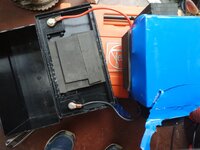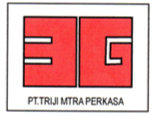Their adoption in electric autos will make them extra attractive to consumers over standard vehicles, resulting in a cleaner environments and decreased CO2 emissions. view more
Credit: Noriyoshi Matsumi from JAIST.

Ishikawa, Japan – With the climate change issues, an ever-growing variety of researchers are currently focusing on improving electric automobiles (EVs) to make them a more engaging different to conventional fuel vehicles. The battery enchancment of EVs is a key challenge to attract more drives. Along with safety, lithium ion battery autonomy, and sturdiness, most people want quickness in charging. Currently, it takes 40-minute with state-of-the-artwork EVs whereas fuel vehicles might be ‘recharged’ in now not than 5 minutes. The charging time needs to be under quarter-hour to be a viable possibility.
Unsurprisingly, lithium-ion batteries (LIBs), that are used everywhere with portable digital devices, have been acknowledged as an possibility in the sphere of EVs, and new methods are at all times being sought to enhance their performance. One strategy to shorten the charging time of LIBs is to increase the diffusion charge of lithium ions, which in flip might be executed by rising the interlayer distance within the carbon-primarily based materials used within the battery’s anode. If you cherished this report and you would like to get additional facts with regards to lithium ion battery – just click the up coming internet page, kindly stop by our web page. While this has been achieved with some success by introducing nitrogen impurities (technically referred to as ‘nitrogen doping’), there isn’t a method simply accessible to regulate interlayer distance or to concentrate the doping element.
Enthusiastic about the results, Professor Matsumi feedback, “The extremely fast charging price with the anode materials we prepared could make it suitable to be used in EVs. Much shorter charging occasions will hopefully appeal to consumers to choose EVs relatively than gasoline-primarily based vehicles, finally resulting in cleaner environments in each main city internationally.”
Another notable benefit of the proposed anode material is the use of a bio-based polymer in its synthesis. As a low-carbon expertise, the material naturally leads to a synergistic impact that reduces CO2 emissions additional. Additionally, as Professor Matsumi remarks, “The use of our strategy will advance the research of construction-property relationships in anode supplies with fast charge-discharge capabilities.”
Allow us to all hope future progress on this field will pave the approach to the widespread adoption of electric vehicles and other ecofriendly applied sciences.
Title of authentic paper:
Extremely Fast Charging Lithium-ion Battery Using Bio-Based Polymer-Derived Heavily Nitrogen Doped Carbon
Journal:
Chemical Communications
DOI:
10.1039/D1CC04931C
About Japan Advanced Institute of Science and Technology, Japan
Founded in 1990 in Ishikawa prefecture, the Japan Advanced Institute of Science and Technology (JAIST) was the first independent nationwide graduate faculty in Japan. Now, after 30 years of regular progress, JAIST has turn into considered one of Japan’s prime-ranking universities. JAIST counts with a number of satellite campuses and strives to foster succesful leaders with a state-of-the-art education system where diversity is key; about 40% of its alumni are international students. The university has a novel fashion of graduate education primarily based on a fastidiously designed coursework-oriented curriculum to make sure that its college students have a strong foundation on which to perform reducing-edge analysis. JAIST also works closely both with local. Overseas communities by selling business-academia collaborative research.
About Professor Noriyoshi Matsumi from Japan Advanced Institute of Science and Technology, Japan
Professor Noriyoshi Matsumi obtained Master’s and PhD levels from Kyoto University, Japan, in 1997 and 2000, respectively. He joined JAIST in 2010, where he at the moment leads the Matsumi Lab at the school of Materials Science. He focuses on lithium-ion secondary batteries, LiFePO4 battery pack steel-air batteries, electrocatalysis, solid polymer electrolytes, ionic liquids, LiFePO4 battery and organoboron compounds, as well as photo voltaic cells and photoconductive supplies. He has revealed over a hundred papers, authored 19 books, and acquired multiple awards from the Society of Polymer Science, Japan, and the Chemical Society of Japan.
